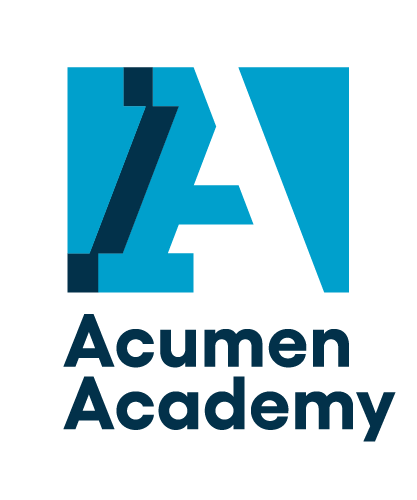Partnering for success: what to look for
Hear from one entrepreneur on the importance of selecting mission-aligned partners who suit your growth stage and bring a track record of complementary expertise
Featured speaker

Molade Adeniyi
West Africa Acumen Fellow

Molade Adeniyi
West Africa Acumen Fellow
Transcript
Molade Adeniyi, CEO, West Africa Vocational Education (WAVE)
Hi, my name is Molade Adeniyi. I am the CEO of West Africa Vocational Education (WAVE), an organization focused on tackling youth unemployment and ensuring that young people across the country have access to job opportunities and improve their livelihood.
Assessing the need for a partner
Sometimes you get a partner from day one, and it really depends on, once your vision and your mission is clear, and once your problem statement is clear, and once how you're going to solve this problem is clear, then you need to ask yourself whether the potential still exists and the partners that you need.
And I think partners are needed at different stages from the organizational place. But this is really focused on where I am today, where do I want to get to tomorrow.
But I think you always need to think about what life cycle you are in in your organization or what works best.
Assessing partner compatibility
I think one critical factor is mission and brand use alignment. I think it's extremely important that whoever you partner with aligns with your organization and aligns with your mission as an organization.
So it's critical that you are asking yourself, what are the non-negotiations? What are the things that you hold dear as an organization? So if a partner is willing to come and wanting to target completely different beneficiaries of the ones that we are focused on, that's not an ideal partner, regardless of how much money they're bringing in as well.
The second thing I would say is expertise as well. Do they actually have the expertise to do the work that you do? What's their track record? So I would always say check references, I'd speak to other people that they are wanting and make sure that they're actually able to do the work that you want to do.
And maybe a third thing when thinking about partnerships is, I think, thinking a little bit more about what is in it for them. Is there a mutual understanding in terms of what we're trying to achieve here?
But sometimes what you find is we have people who, they come and say partnership, they have it all, seen or unseen. So again, a signed agreement is always extremely critical.
Let us all put what each party is doing on the team, and let us all sign it off as well.
Key takeaways
Identify partners that compliment your organization’s current goals and growth stage
Ensure your mission, values, and other non-negotiables align with your partners’
Choose partners with a strong track record and complementary expertise
Establish clear goals and roles through signed agreements
